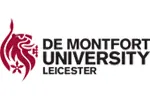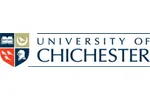Overview
If you work in a supporting role in a pathology lab environment and want to register as a Biomedical Scientist with the Health and Care Professions Council (HCPC), this 4-year, part-time BSc (Hons) Applied Biomedical Science degree apprenticeship is for you. You'll study alongside your existing job, and won't need to pay anything towards your course fees.
When you complete the course successfully, you'll be eligible to apply for registration as a Biomedical Scientist with the Health and Care Professions Council (HCPC). You'll have a vital, in-demand skill set, opening paths to roles from diagnosing illnesses such as COVID–19 to establishing whether a patient and donor are compatible for transplantation.
Course Highlights
- Learn about the main pathological disciplines, including haematology, blood transfusion, microbiology, clinical biochemistry, histology and immunology
- Develop your skills in interpreting data in a laboratory context
- Have the opportunity to apply for membership to the Institute of Biomedical Science (IBMS), opening up a further portfolio of training courses, and the potential for future professional advancement
- Improve your communication skills in scientific and analytical writing, learning how to communicate complex scientific concepts to a broad audience
- Earn a degree qualification while you work, with the Government and your employer covering your tuition fees
Careers and opportunities
Whether it's processing tests for diseases such as coronavirus or providing diagnosis services to GPs, accident and emergency departments and other health services, registered Biomedical Scientists play a key role in public health.
They analyse fluid and tissue samples from patients in order to identify diseases or evaluate the effectiveness of different treatments. In fact, more than 70% of NHS diagnoses are based on lab findings by biomedical scientists, so it's a profession that's always in high demand.
When you graduate, you'll be ready to work in a Band 5 Biomedical Scientist role in areas such as:
- Main pathology disciplines, such as haematology, biochemistry, blood transfusion, microbiology, histology or immunology
- Molecular medicine
- Genetics
- Government and professional research
With further training and experience, this qualification allows progression to roles such as:
- Section leader
- Laboratory manager
- Consultant Biomedical Scientist
You'll also be able to continue onto qualification routes such as:
- Master's
- PhD
- Professional Doctorate
- IBMS professional qualifications
- The Scientist Training Programme (STP)
















